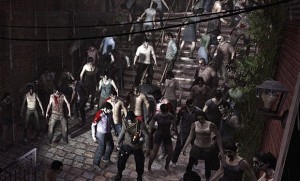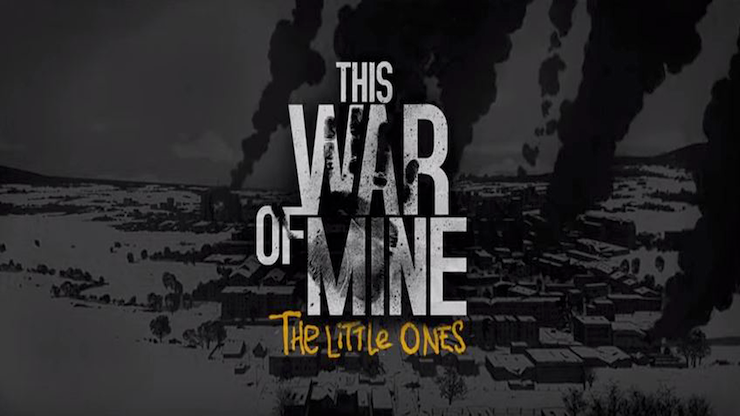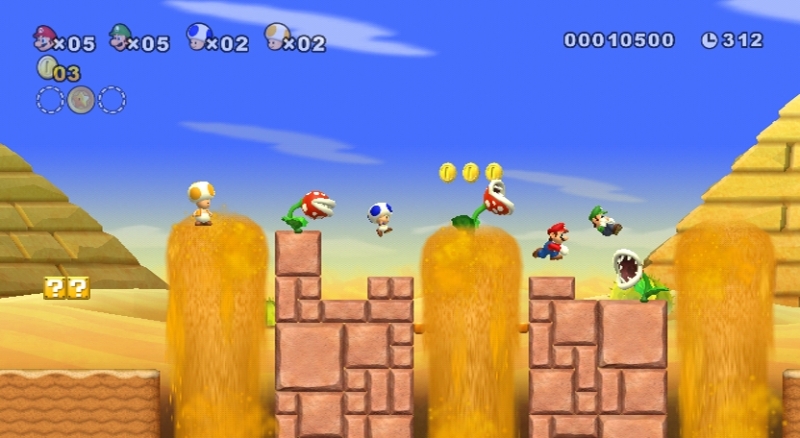Games have taught us to fight, to follow orders and get the job done, because if we do, we’ll be rewarded in some way. Fewer games have taught us to reflect on what we’re doing, and why. We can reflect on our own, of course — that’s a lot of what we do here! — but self-reflection and examination is less a go-to element of game design than hitting something with a weapon. Over at Problem Machine, Undertale (along with The Beginner’s Guide, which I’ve written about before, and Hotline Miami) were described as games designed in “a style that holds a mirror up to the player and makes them question themselves.” That reflection is built into the fabric of the games; it can be ignored by an oblivious player, but to do so would be to miss much of the game’s richness, unlike a game like Dishonored 2, which can be certainly be explored deeply, or just played as either a stealth game or a chaotic bloodbath. In these games, this self-reflection isn’t just a superficial layer added, either, a slapdash attempt at engaging in something larger without really engaging with it. In that same piece at Problem Machine: “This is not the same thing as interrogating the player directly, which has recently become a somewhat trendy way of adding a sort of facile depth to game narrative…it’s quickly become trite and co-opted, a way to have a cake and eat it too, a way to pretend to be above the crowd while still being firmly part of it, superficially questioning the morality of the player’s actions while still locking their actions into place and encouraging the player to take them, rewarding them for doing so.” In this way, we have been taught to fight, and to mock, or laugh, but less often to stop and consider.
Undertale, at its heart, is about consideration. I knew that, having read about the game, having talked with friends, but I never played past the beginning so it was a kind of cultural knowing, a shared knowing, much as we all know the central conceit of the various Calls of Duty and Elder Scrolls games. This weekend, however, my elder child asked to play Undertale after being introduced to the game via videos, and in watching him play, I’ve learned more about the game than I might have even had I finished it myself. He talks a lot as he plays, working things out aloud, and also to share his impressions. He’s a social kid. And part of what he talked through was the struggle not to fight. He knew about the pacifist route, but as it turns out, navigating a game without giving into the temptation for the quicker, easier cycle of fight-reward is difficult, especially when you’re still reveling in the kind of instant gratification life sometimes provides when you’re a sheltered kid. Hungry? Snacks are at hand. Feel sick? Someone will take care of you. Tired? Sleep; someone else will make sure things get done around you. Your worries are few. But here is a challenge: go against everything games have taught you, from Minecraft to RPGs to everything in between, and don’t fight. Engage instead. Get to know the members of this weird world.
But what he was learning through this struggle, I couldn’t say. I’m not sure he could, either; after all, he’s very young, and mostly he was learning “Undertale is hard, but fun.” But like Alex, I’m interested in the many ways games can help us practice, refine, or understand emotions, and this was an example that got us both thinking. My child was busy thinking about how he could fight against his training, and I was thinking about how games like this can inspire us to think about the impact of our actions.

When we are fighting in a game, we’re often discouraged from considering the enemies as human. “It’s just a game,” we say. “They’ll kill us if we don’t kill them.” Enemies often look similar, even the same. The better to be faceless. And outside of games like Undertale, or maybe something like Bastion, or This War of Mine — more games with self-reflection built into their very frameworks — we aren’t tasked with meditating on what happens if we blow through them. In Undertale, the player chooses whether or not another character is an enemy. The impact of player action is very visible and very real.
We don’t often get to see the impacts of our actions in the world outside games. Sure, we can choose to be nice or not to a co-worker and reap the reward (or punishment), but when we open a plastic bottle, or brew a pot of coffee from beans grown somewhere, under some conditions, and then shipped to us, we don’t see that impact. It isn’t right outside, or in front of us on a screen.
If, as Alex wrote, games can help teach us empathy in that way, maybe they can help us think beyond the more immediate, too. Through these small steps, we can begin to see how things are connected, how actions have vast impacts. How decisions that seem so simple really aren’t simple at all.




